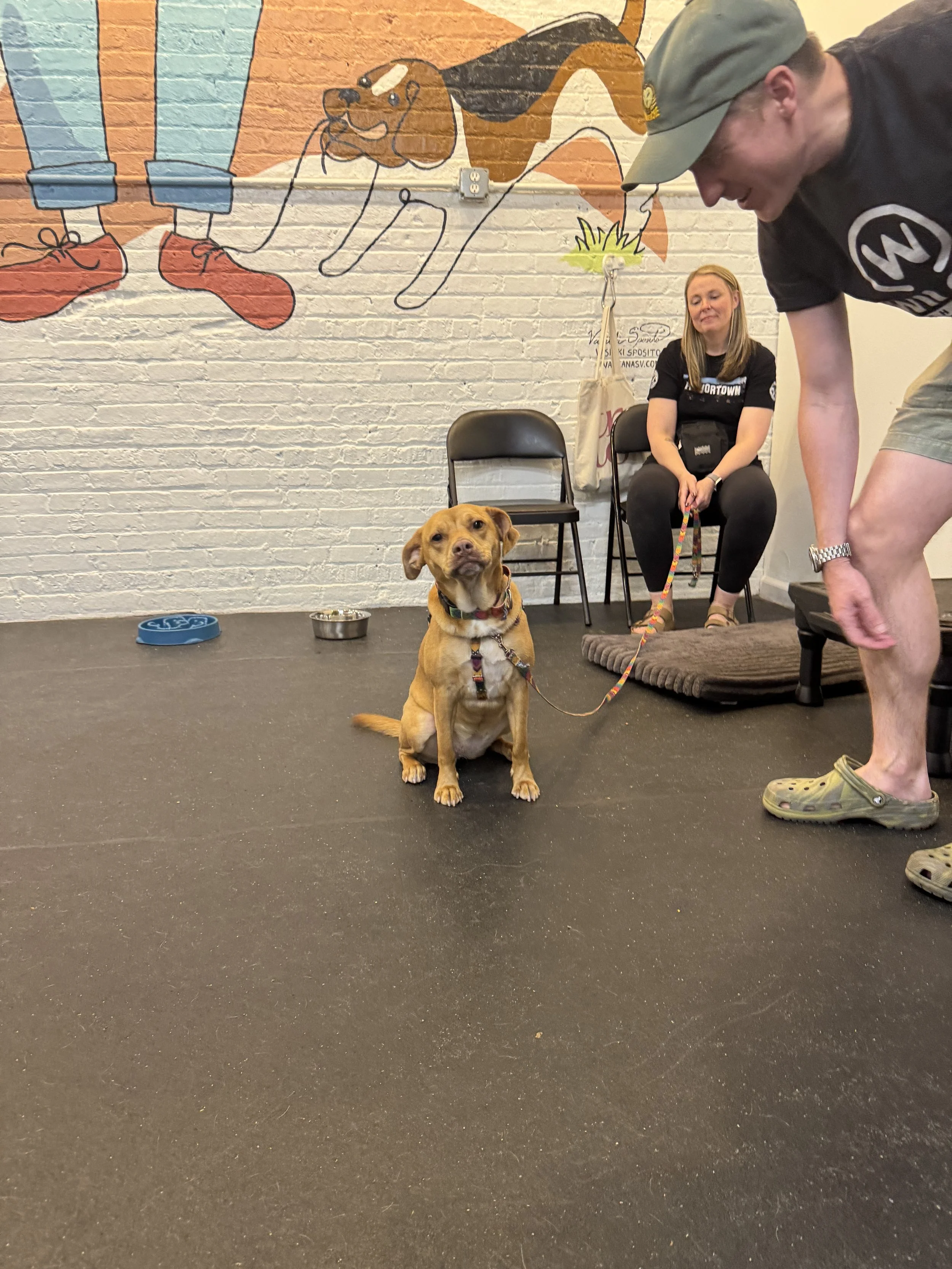Why Does My Dog Bark at Other Dogs on Walks?
If your dog gets loud every time another pup passes by, it can make daily walks feel stressful instead of enjoyable. Barking on leash doesn’t always mean aggression—it’s usually your dog’s way of coping with big emotions like excitement, frustration, or uncertainty.
Once you understand what’s driving the behavior, you can help your dog build better habits and feel more at ease outside.
The most common reasons dogs bark at other dogs:
1. Over-excitement 🎉
Some dogs get so thrilled at the sight of another dog that they can’t hold it in. Barking becomes their outlet for that energy.
2. Fear or uncertainty 😬
Other dogs bark to create distance. If they’re feeling uneasy, barking is their way of saying, “I need space.”
3. Frustration 😤
When a dog wants to greet another dog but can’t because of the leash, it often leads to frustration. That pent-up energy comes out in barking and pulling.
4. Protection 🛡️
Some dogs feel responsible for guarding their people. Barking at other dogs on walks can be an attempt to keep potential “threats” away.
Why it feels like it gets worse
Barking can quickly become a learned habit.
Each time your dog barks and the other dog moves away—or you pull them in the opposite direction—they feel like the barking worked. Over time, it becomes their go-to response whenever they see another dog.
How to help your dog bark less
With practice, dogs can learn calmer ways to handle these situations. A few strategies that help include:
Create space – Cross the street or add distance when another dog is approaching. More space lowers stress.
Reward calm behavior – Reinforce moments when your dog looks at you instead of barking. Treats and praise can make a big difference. Check out our Calm Copilot group class!
Introduce simple training games – Pattern games give your dog something predictable to focus on instead of reacting.
Build skills in quiet settings first – Teach cues like “watch me” or “let’s go” at home before using them in busy environments. Learn more about private training.
How Copilot can help
When your dog barks at other dogs on walks, it doesn’t mean they’re “bad.”
If your dog’s barking feels overwhelming—or if it escalates into lunging, growling, or snapping—it may be time for professional support. This type of barking often falls under reactivity training, which is one of our specialties!
Reactivity is simply the way your dog has learned to communicate. With positive reinforcement, structured training, and a little patience, your dog can develop new habits that make walks easier for both of you.
We’ll help you uncover what’s driving the behavior and give both you and your dog the tools to walk with more confidence and less chaos.
We keep reactivity group class small so pups feel safe and still have fun 🩷
Group Classes
Reactivity Group Class
$450 / 6 weeks
This class is for dogs with leash reactivity/frustration in a safe, group setting. Class size is 4 dogs and taught by two certified trainers. First class is for humans only.
Calm Copilot Group Class
$225 / 5 classes
This class uses a mix of relaxation techniques, focus exercises and pattern games to give you the tools you need to navigate city life.
Loose Leash Walking Group Class
$180 / 4 sessions
This class teaches polite greetings and leash walking skills to help your dog navigate city streets and meet people with confidence.
One-On-One Sessions
Private Lessons
$135 / 1 session
Some dogs need a little extra support — and some need a lot. Our private dog training in Chicago is designed to give you one-on-one guidance that meets your dog right where they are. Sessions are hosted at our Avondale HQ or in your home.
Day Training
$1,170 – $1,440 (based on package)
Your pup will work with us in your home for 1-hour sessions 2x a week. We’ll regroup on your pup’s progress with a 1x1 together on the weekend. You’ll get wrap up notes and group sessions at the end of your package to ensure you’re set up for success.
~ FAQs ~
-
Not necessarily!
Many dogs bark out of excitement, frustration, or nervousness—not aggression. True aggression usually comes with more serious body language like stiff posture, growling, or snapping.
-
Start by creating more space when another dog is nearby.
Reinforce calm behavior with rewards, and teach simple focus cues at home before practicing outside. If barking escalates, a professional trainer can help.
-
This is often called leash reactivity. It’s usually driven by frustration or fear. Because the leash limits your dog’s choices, the behavior tends to come out louder and more intense.
-
With patience and consistent training, it can be! While reactivity may not disappear overnight, dogs can learn new ways to handle their emotions and stay calm around triggers.
-
No. Punishment may suppress the barking in the moment, but it doesn’t change how your dog feels.
Using positive reinforcement and training games builds lasting, calmer behavior while also keeping your bond in tact.



